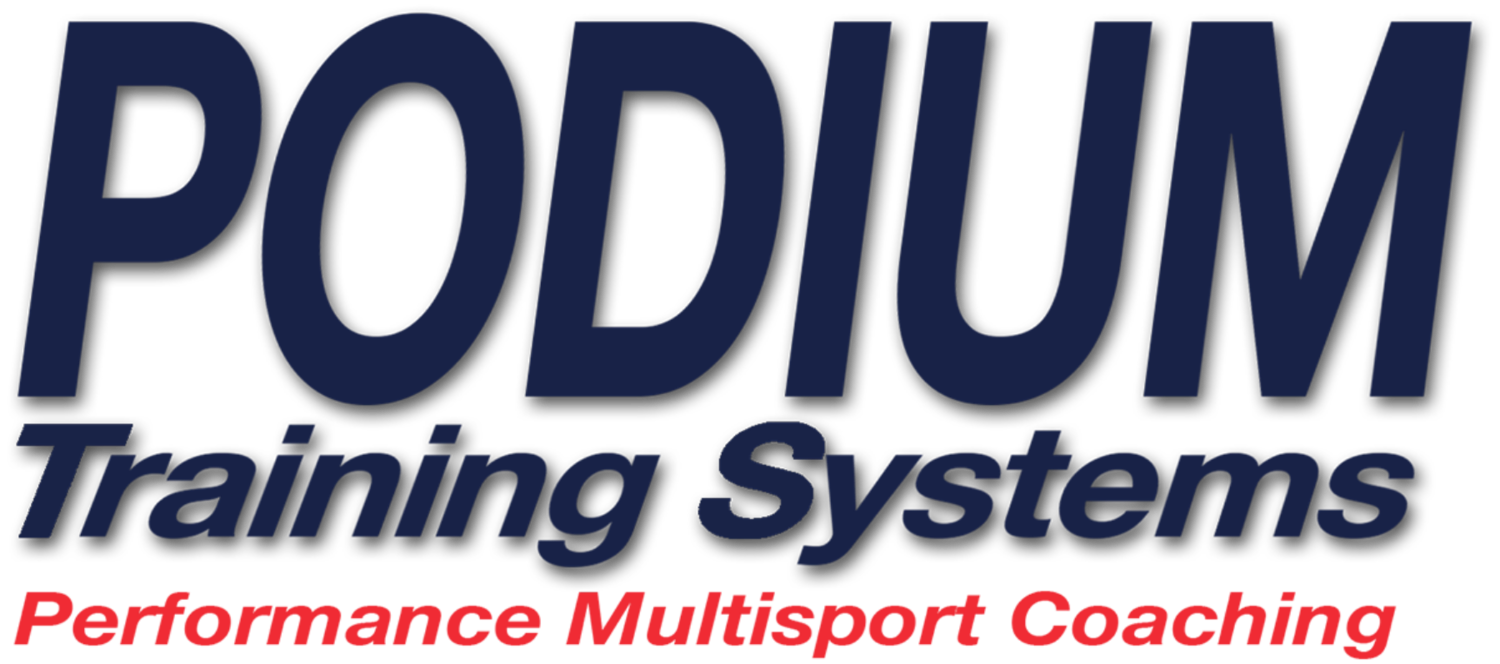I do a lot of swim coaching here in Colorado. Both for my own athletes as well as with a local Masters swimming program. My library of workouts is growing, and over here at Podium Training we're starting our own "Workout Wednesday" posts to help athletes, and coaches, during this off-season and into the racing season next year.
The specificity of this weeks workout is almost two-fold. It's speed endurance at it's core. By that, you'll see that you're getting minimal rest during the beginning of the progression in the main set - you're certainly in threshold or higher Z4 at the beginning. However as you progress down towards the 10 x 25 phase, you're moving into a pure speed focus. Lots of rest as you progress (a very different work : rest ratio) so you or your athletes should be going at maximum effort as the efforts become shorter.
This is a workout I gave my Masters group this past Saturday morning. It's short course yards (SCY) and lasts just about 90 minutes, give or take a few. During the warm up, usually once a week, I like to include a drill set. If you're unfamiliar with any of the drills I list, or aren't sure what they're supposed to look like, drop me a line and I'll send you some video links.
More importantly, the comments that I received from athletes after this workout were exactly what I anticipated. When I told them the workout total was just over 3,600 yards, they all had assumed that the yardage was higher. The key here was quality over quantity. You can drop the volume in a training session by ensuring that the quality is higher. Yes, you need some long endurance days, but for speed and speed endurance the focus is shifted away from a lot of volume.
A final note - the send-offs here will obviously need to be adjusted based on your, or your athletes, base 100 times. In the workout below, the athletes doing this workout were holding about a 1:10-1:15 average 100 time.
The specificity of this weeks workout is almost two-fold. It's speed endurance at it's core. By that, you'll see that you're getting minimal rest during the beginning of the progression in the main set - you're certainly in threshold or higher Z4 at the beginning. However as you progress down towards the 10 x 25 phase, you're moving into a pure speed focus. Lots of rest as you progress (a very different work : rest ratio) so you or your athletes should be going at maximum effort as the efforts become shorter.
This is a workout I gave my Masters group this past Saturday morning. It's short course yards (SCY) and lasts just about 90 minutes, give or take a few. During the warm up, usually once a week, I like to include a drill set. If you're unfamiliar with any of the drills I list, or aren't sure what they're supposed to look like, drop me a line and I'll send you some video links.
More importantly, the comments that I received from athletes after this workout were exactly what I anticipated. When I told them the workout total was just over 3,600 yards, they all had assumed that the yardage was higher. The key here was quality over quantity. You can drop the volume in a training session by ensuring that the quality is higher. Yes, you need some long endurance days, but for speed and speed endurance the focus is shifted away from a lot of volume.
A final note - the send-offs here will obviously need to be adjusted based on your, or your athletes, base 100 times. In the workout below, the athletes doing this workout were holding about a 1:10-1:15 average 100 time.
Warm up
200 Easy
.
10 x 50
2 x Catch up, finger drag, dog paddle, Tarzan, swim
On 1:15
Main sets
8 x 75 on 1:20
Build up. 1st 25 easy, building to hard effort on the last 25.
.
4 x (200, 100, 50, 10 x 25)
200 on 2:45
100 on 1:40
50 on 1:00
25’s max effort on :45
1 extra minute of rest after each round.
Cool down
100 / 200 Easy
3650 yards

